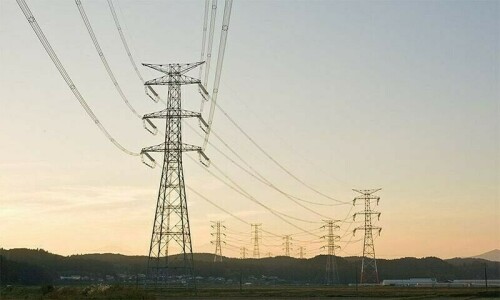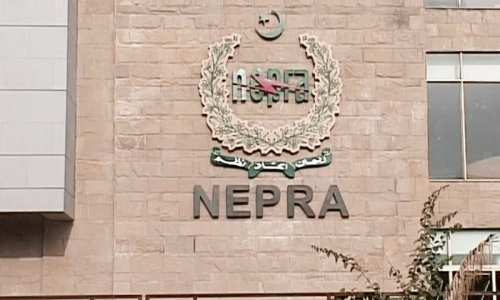ISLAMABAD: In light of the recent increase in base tariffs, government-owned power distribution companies (Discos) have sought an additional fuel cost adjustment (FCA) of Rs2.63 per unit to extract about Rs35 billion more from consumers in the next billing cycle for the electricity consumed in June.
The Central Power Purchasing Agency (CPPA), a subsidiary of the power division, has filed a formal petition before the regulator for an increase of Rs2.63 per kilowatt-hour (unit) over the reference tariff of Rs7.14 per unit already charged to consumers in June. This increase comes even though almost 75 per cent of the power supply was generated from cheaper local fuels, primarily renewables.
This proposed increase in FCA is on top of an average 20pc increase in annual base tariff effective July 1. As a result, consumers would have to pay excessive bills amid high consumption in hot and humid temperatures. The power regulator Nepra has accepted the request for a public hearing on July 31. It said the CPPA had originally sought Rs2.10 per unit additional FCA but revised it to Rs2.63 per unit.
The higher FCA for June 2024 is attributed to unexpected power production from furnace oil, higher domestic coal and gas prices, and increased utilisation of liquefied natural gas (LNG). In a petition, the CPPA, acting as a commercial agent of Discos, demanded an additional FCA of Rs2.63 per unit in the billing month of August for electricity consumed in June. It claimed that the reference fuel cost for June was set at Rs7.14 per unit, but the actual fuel cost turned out to be Rs9.77 per unit.
The agency said that in June, about 13,459 gigawatt-hours (GWh) of electricity were generated at an estimated fuel expenditure of Rs119.7bn (Rs8.89 per unit), of which 13,071 GWh was delivered to Discos at a cost of Rs127.7bn (Rs9.77 per unit).
The data showed a minor reduction in consumption, about 1.9pc lower in June 2024 compared to 13,327Gwh in the same month last year. The Rs2.63 per unit FCA for June this year is also 40pc higher than Rs1.88 a year ago.
Hydropower, which has no fuel costs, contributed the largest share of the total power supply at 35pc in June, up from 30pc last year. LNG-based power generation followed at 18pc, while nuclear power supplied about 14.85pc. Local coal contributed over 11pc, and local gas accounted for 8.66pc. Imported coal provided 4.74pc of the grid’s supply in June.
The cost of LNG-based power generation in June increased to Rs26.32 per unit compared to Rs24 in May and Rs22.8 in April. The fuel cost of domestic gas-based generation slightly increased to Rs13.93 per unit compared to Rs13.19 in May.
On the other hand, the cost of local coal-based generation dropped to Rs11.1 per unit from Rs11.7 in May. The cost of imported coal-based generation declined to Rs15.5 per unit in June, against Rs16.8 a month earlier.
Three renewable energy sources — wind, bagasse and solar — together contributed 5.14pc share to the grid in June compared to 4.97pc in May. While wind and solar have no fuel costs, bagasse-based generation costs remained unchanged at around Rs6 per unit.
After approval by Nepra, the increase in FCAs would be adjusted in consumers’ bills for August.
Published in Dawn, July 26th, 2024













































Dear visitor, the comments section is undergoing an overhaul and will return soon.